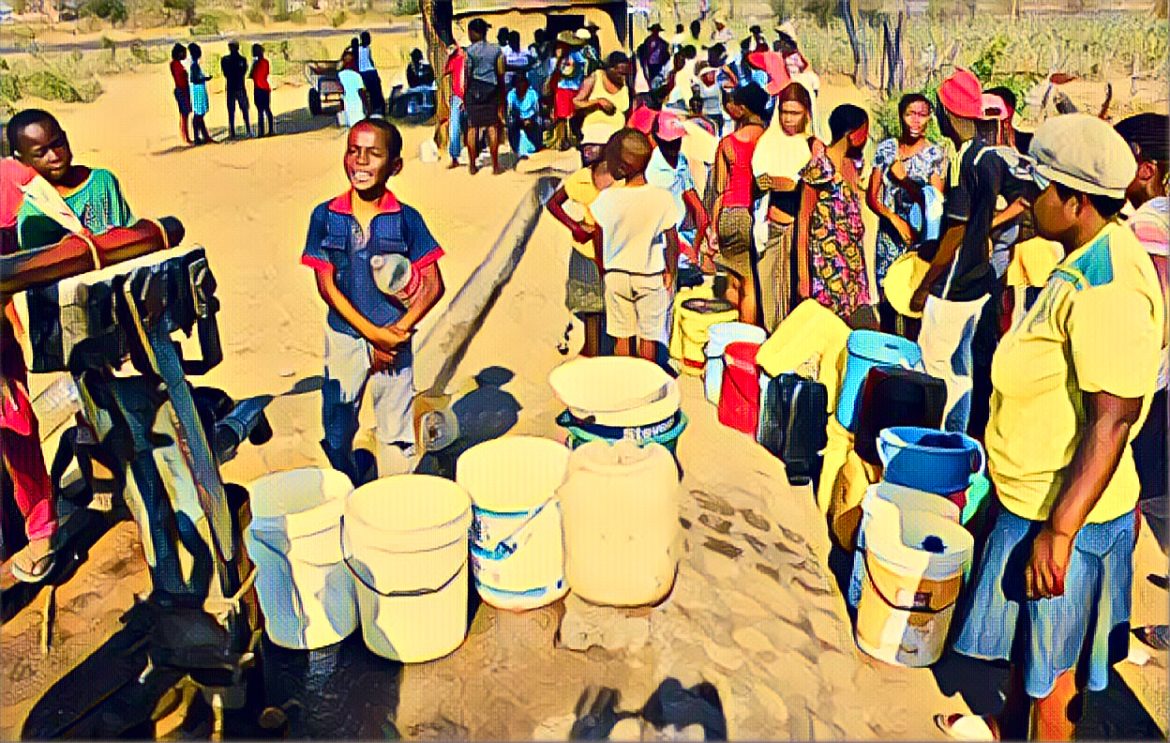In Chitungwiza, Zimbabwe, the severe water crisis has escalated to a pressing social issue, fueling instances of gender-based violence (GBV) and entrenching cycles of poverty and domestic strife. The Women4Water Movement, commemorating World Water Day under the theme “Leveraging on Water for Peace,” emphasizes the disproportionate burden women and girls bear due to water scarcity. Caroline Mutimbanyoka, a leader within the movement, underscores the dire need for systemic changes to address water insecurity and inequity, highlighting the abuse women face both at home and at communal water points.
Mutimbanyoka’s call for action is echoed by ActionAid Zimbabwe, which, in a statement marking World Water Day, brought attention to the broader implications of water scarcity on gender inequalities, education, economic stability, and health. The organization’s country director, Joy Mabenge, points out the exacerbation of these challenges by climate change and inadequate governmental responses. The scarcity of water, a fundamental human right, has been aggravated by rapid urbanization, climate change, recurrent droughts, and inadequate infrastructure, painting a bleak picture of the struggle for access to clean and safe water in Zimbabwe.
This narrative not only highlights the immediate physical dangers posed by the water crisis but also the broader socio-economic impacts. Women, traditionally responsible for water collection in many communities, face heightened risks of GBV as they navigate the challenging terrain of scarce water resources. The time-consuming task of water collection also detracts from educational opportunities, economic activities, and personal safety, further deepening gender disparities.
ActionAid Zimbabwe’s statement on the occasion of World Water Day sheds light on the cascading effects of water scarcity, underscoring the urgent need for concerted efforts among government bodies, civil society organizations, and communities. The organization advocates for a multifaceted approach to address the crisis, involving significant investments in water and sanitation infrastructure, adaptation strategies to mitigate the impacts of climate change, and inclusive decision-making processes that consider the needs and rights of all stakeholders, especially the most vulnerable populations.
The challenges faced by Zimbabwe, characterized by rapid urbanization, increasing temperatures, recurrent droughts, and outbreaks of waterborne diseases, demand a comprehensive and sustainable solution. The emphasis on involving every stakeholder in decision-making processes related to water provision highlights the importance of community engagement and empowerment in tackling the water crisis. By ensuring the full participation of all rights holders, including women and girls who are most affected by water scarcity, a more equitable and effective management of water resources can be achieved.
As Zimbabwe grapples with these multifaceted challenges, the stories from Chitungwiza serve as a stark reminder of the interconnectedness of environmental issues, gender equality, and human rights. The water crisis is not merely an issue of resource management but a profound social issue that impacts the dignity, safety, and well-being of entire communities. The call to action by Women4Water and ActionAid Zimbabwe resonates with a broader global imperative to address environmental injustices and to work towards a future where access to clean and safe water is not a privilege but a right afforded to all.
Source: Newsday


